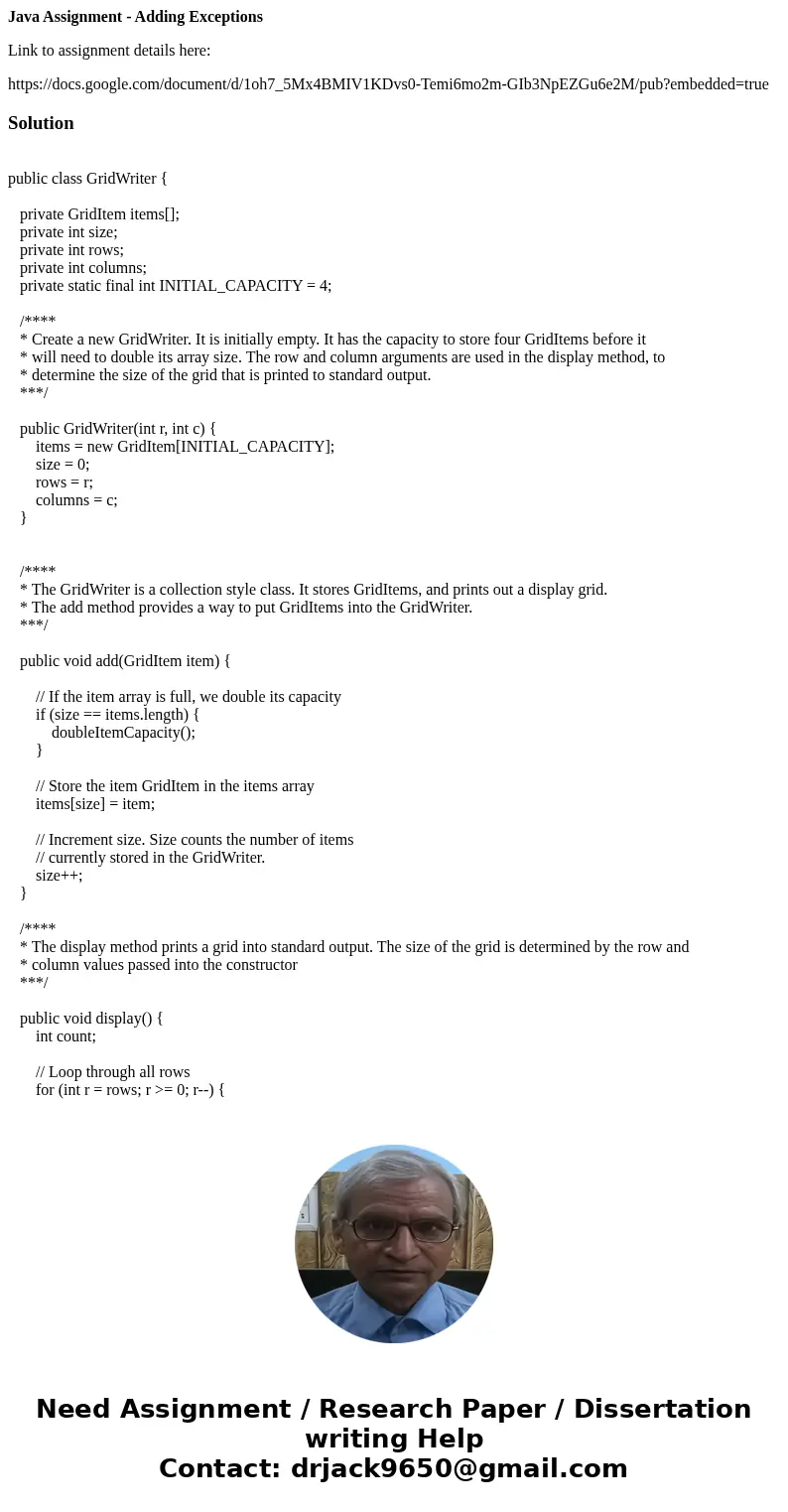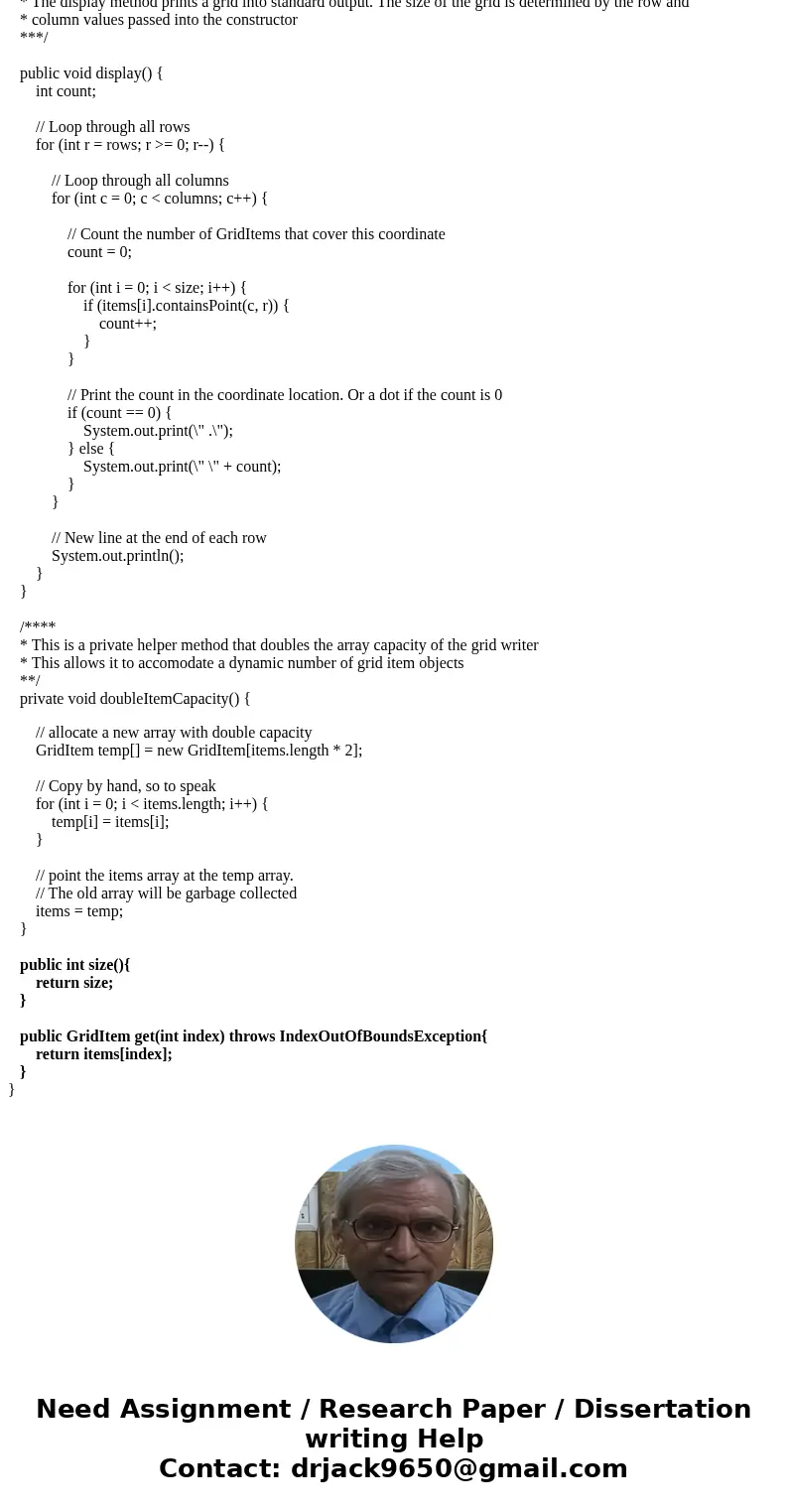Java Assignment Adding Exceptions Link to assignment detail
Java Assignment - Adding Exceptions
Link to assignment details here:
https://docs.google.com/document/d/1oh7_5Mx4BMIV1KDvs0-Temi6mo2m-GIb3NpEZGu6e2M/pub?embedded=true
Solution
public class GridWriter {
private GridItem items[];
private int size;
private int rows;
private int columns;
private static final int INITIAL_CAPACITY = 4;
/****
* Create a new GridWriter. It is initially empty. It has the capacity to store four GridItems before it
* will need to double its array size. The row and column arguments are used in the display method, to
* determine the size of the grid that is printed to standard output.
***/
public GridWriter(int r, int c) {
items = new GridItem[INITIAL_CAPACITY];
size = 0;
rows = r;
columns = c;
}
/****
* The GridWriter is a collection style class. It stores GridItems, and prints out a display grid.
* The add method provides a way to put GridItems into the GridWriter.
***/
public void add(GridItem item) {
// If the item array is full, we double its capacity
if (size == items.length) {
doubleItemCapacity();
}
// Store the item GridItem in the items array
items[size] = item;
// Increment size. Size counts the number of items
// currently stored in the GridWriter.
size++;
}
/****
* The display method prints a grid into standard output. The size of the grid is determined by the row and
* column values passed into the constructor
***/
public void display() {
int count;
// Loop through all rows
for (int r = rows; r >= 0; r--) {
// Loop through all columns
for (int c = 0; c < columns; c++) {
// Count the number of GridItems that cover this coordinate
count = 0;
for (int i = 0; i < size; i++) {
if (items[i].containsPoint(c, r)) {
count++;
}
}
// Print the count in the coordinate location. Or a dot if the count is 0
if (count == 0) {
System.out.print(\" .\");
} else {
System.out.print(\" \" + count);
}
}
// New line at the end of each row
System.out.println();
}
}
/****
* This is a private helper method that doubles the array capacity of the grid writer
* This allows it to accomodate a dynamic number of grid item objects
**/
private void doubleItemCapacity() {
// allocate a new array with double capacity
GridItem temp[] = new GridItem[items.length * 2];
// Copy by hand, so to speak
for (int i = 0; i < items.length; i++) {
temp[i] = items[i];
}
// point the items array at the temp array.
// The old array will be garbage collected
items = temp;
}
public int size(){
return size;
}
public GridItem get(int index) throws IndexOutOfBoundsException{
return items[index];
}
}


 Homework Sourse
Homework Sourse